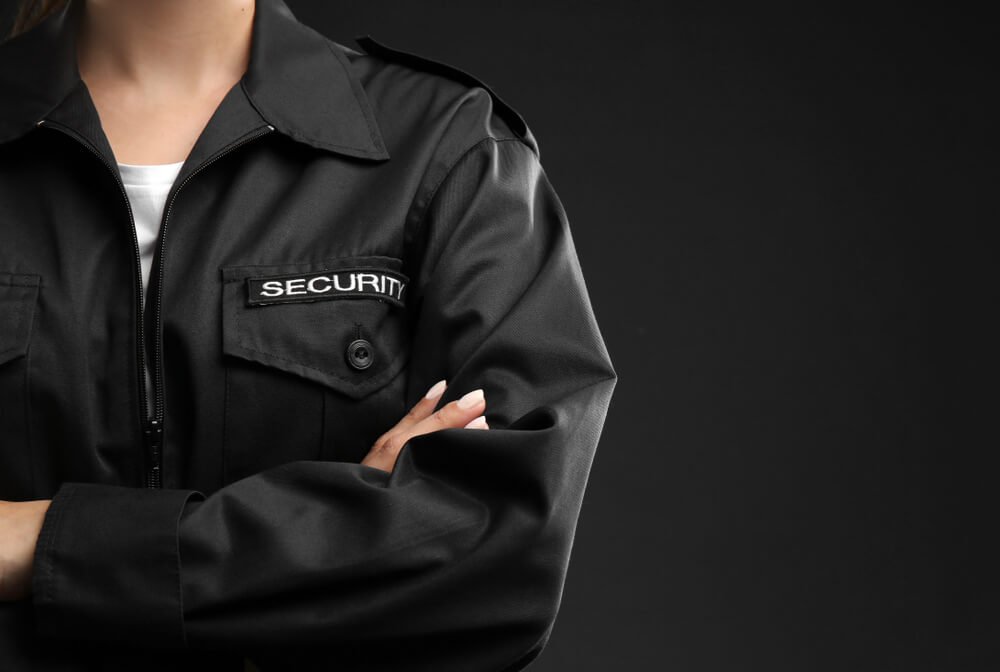In today’s dynamic world, understanding the role and legal authority of security guards is crucial for businesses, event organizers, and the general public. This article delves into the essential functions and legal boundaries of security guards, providing you with a comprehensive guide to their responsibilities and powers. Whether you’re looking to hire security services or simply want to be informed, this guide offers valuable insights into what security guards can and cannot do, ensuring you make informed decisions.
What Is A Security Guard?
A security guard is a professional responsible for protecting property, assets, and people. Their primary role involves deterring criminal activity, monitoring surveillance, and ensuring safety in various environments like businesses, events, and public spaces. Security guards are trained to handle emergencies, offer first aid, and manage crowds, aligning with specific legal and ethical guidelines.
Explore the difference between a security guard and a security officer
What Can Security Guards Do?
Security guards have several key responsibilities, including:
- Observation and Reporting: Monitoring for suspicious activities and reporting them to the proper authorities.
- Enforcing Rules: Implementing the rules of the property they guard, which may include managing access and overseeing the conduct of visitors.
- Emergency Response: Acting swiftly in emergencies, providing first aid, and guiding people to safety.
- Deterring Crime: Serving as a visible deterrent to prevent theft, vandalism, and other criminal activities.
- Conducting Searches: Performing searches of individuals or property, but typically under specific conditions like obtaining consent or as a part of entry requirements.
While they share similarities with police officers, security guards do not have the same legal authority and are primarily focused on the protection and safety of specific properties or events.
Learn More: What security guards can and cannot do?
Legal Powers of a Security Guard
Can Perform a Citizen’s Arrest
One of the most significant legal powers bestowed upon security guards is the ability to perform a citizen’s arrest. According to Legal Services Commission of South Australia, security guards in Australia can arrest people if they are caught committing or have just committed an offense..However, this power is not absolute and comes with specific conditions and legal considerations.
Conditions and Procedures
The right to perform a citizen’s arrest is typically invoked under certain conditions. Primarily, a security guard can only arrest if they have directly witnessed a crime taking place, or if the individual is caught in the act of committing a crime on the property they are protecting. Security guards must understand that they cannot detain someone based solely on suspicion or hearsay.
The procedure for executing a citizen’s arrest must also adhere to legal standards. The guard must inform the individual that they are being detained, and the reasons for the detention. Physical restraint should be reasonable and proportional to the situation. Excessive force or unnecessary physical harm can lead to legal repercussions for the security guard and their employer.
In addition, once an individual is detained, a security guard is responsible for ensuring their safety and well-being until law enforcement arrives. This includes providing necessary medical assistance if required and avoiding any actions that could be construed as punitive or abusive.
Jurisdiction on Private Property
The legal powers of a security guard are most clearly defined when it comes to their jurisdiction on private property. This is the domain where their authority is most potent, yet it is also bounded by specific legal constraints.
Authority and Legal Boundaries
A security guard’s primary role on private property is to protect the property, its occupants, and visitors. Within this scope, they have the authority to enforce the property’s rules and regulations. This can include managing access control, ensuring that only authorized individuals enter, and monitoring the conduct of visitors and employees.
The power of a security guard on private property does not equate to unlimited authority. Their actions must always align with the legal rights of individuals. For instance, while they can ask someone to leave the property, they cannot use unreasonable force unless it is necessary for self-defense or defense of others.
An important aspect of a security guard’s role on private property is the relationship with law enforcement. Security guards act as the eyes and ears on the ground, and their observations and reports can be crucial for law enforcement agencies. However, they must remember that their role is to observe, report, and deter, not to act as law enforcement officers.
Use Force/Weapons
A critical aspect of a security guard’s role is the potential use of force or weapons in carrying out their duties. This area is heavily regulated and subject to strict legal guidelines to ensure the safety of both the public and the guards. According to Legal Services Commission of South Australia, security guards are only allowed to use force against you if they are on duty.
Learn more: Armed vs Unarmed Security Guard: The Difference
Guidelines and Legal Restrictions
The fundamental principle governing the use of force by security guards is that it must be reasonable and proportionate to the threat encountered. The concept of ‘reasonable force’ is central to this guideline. It implies that the level of force used should not exceed what is necessary to control a situation or defend oneself or others from harm.
In situations where weapons are involved, the regulations become even more stringent. Security guards are generally allowed to carry weapons only if they have received specialized training and hold the necessary permits. The types of weapons that guards are permitted to carry can vary depending on regional laws and the specific requirements of their job.
Search
The power to conduct searches is another significant aspect of a security guard’s role. In Australia, security guards cannot search you without your consent.
Legal Rights and Protocols for Searching Individuals
Security guards may be required to search individuals as part of their duty to protect property and ensure safety. However, the right to conduct these searches is typically contingent upon specific conditions. In most scenarios, guards can only search individuals with their explicit consent or as a stipulated condition of entry into a property.
The proper techniques and legal requirements are crucial for conducting searches. They should understand how to obtain consent, communicate the reasons for the search, and respect the individual’s rights during the process.
Tips for Choosing Security Services
When choosing security services, consider factors such as the training and certification of guards, the reputation of the security company, and the specific needs of your property or event. It’s also important to understand the legal scope of services offered, ensuring that the security measures align with legal standards and your personal or business requirements.
Frequently Asked Questions
1. What are the primary duties of a security guard?
Security guards are responsible for protecting property and people, monitoring surveillance, enforcing rules, and responding to emergencies. Their presence serves as a deterrent to criminal activities.
2. Can security guards perform arrests?
Security guards can perform a citizen’s arrest under specific conditions, such as directly witnessing a crime. However, they must adhere to legal standards and cannot detain someone based on suspicion alone.
3. What legal powers do security guards have on private property?
On private property, security guards can enforce property rules, control access, and in certain situations, detain individuals under a citizen’s arrest. However, they must always respect individual rights and cannot use unreasonable force.
Closing Thoughts
Understanding the roles and legal powers of security guards is essential in today’s society. It empowers you to make informed decisions regarding security services and ensures that you have realistic expectations of what security personnel can offer. If you’re seeking professional and reliable security solutions that align with legal standards, consider reaching out to experts in the field. Don’t hesitate to contact us at Walton Security for tailored security strategies that meet your unique needs.
You can reach us | By Phone | 03 9028 8098
Website | www.waltonsecurity.com.au and you can chat to us from here
Email | info@waltonsecurity.com.au







